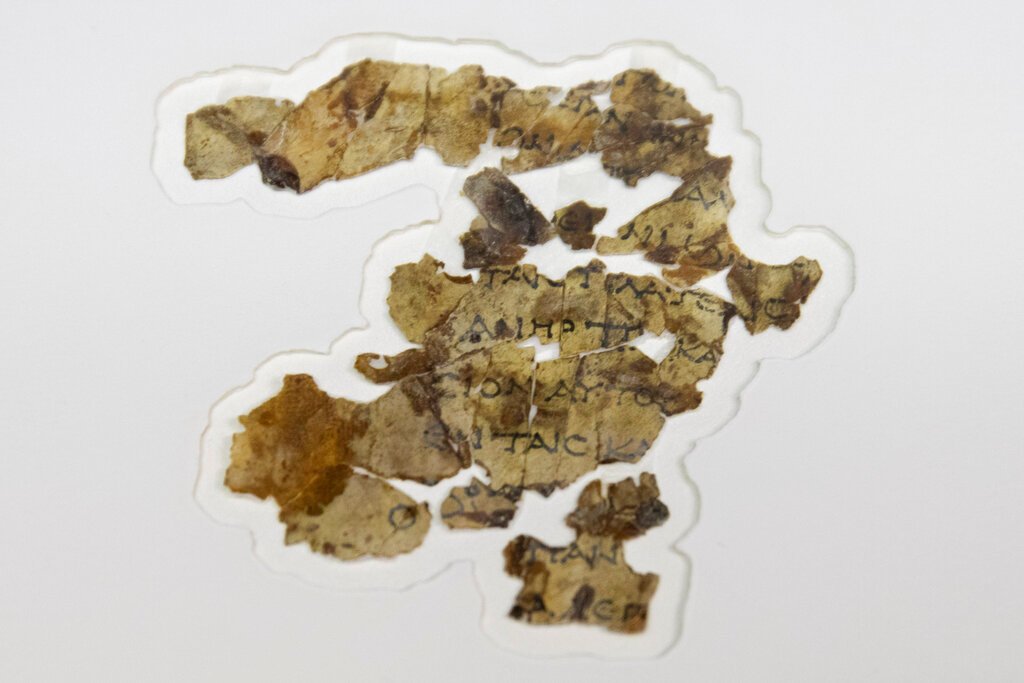The "living and active" Word of GodThroughout the year, the Southern New England Conference of the United Church of Christ reproduces the Daily Lectionary for use by churches. These are the suggested readings for Thursday, March 18th: Psalm 51:1-12; Isaiah 30:15-18; and Hebrews 4:1-13. I would encourage you to read these short selections as part of your Lenten practice.
A couple of days ago, Israel unveiled for public viewing a collection of newly discovered fragments found in caves scattered around the Dead Sea. They have named these as belonging to the famous Dead Sea Scrolls discovered in 1947. The fragments date to the time around Jesus of Nazareth and are the oldest copies of the biblical text ever found. Some of the fragments are but the tiniest scraps of text, but they are treated with the utmost respect: by some because of their antiquity and connection with ancient Israel, and by others because these are authentic connections with the inspired Word of God that “is living and active, sharper than any two-edged sword, piercing until it divides soul from spirit, joints from marrow; it is able to judge the thoughts and intentions of the heart.” It is absolutely essential to do everything possible to get as close to the original text as scholars are able. This is an aspect of what is called Form Criticism. Scholars work to recreate the original text hoping to discover the original context and thus the original meaning. This is part of exegesis. It is the scholarship that searches for what the text meant at the time it was written and within and on behalf of the community it was written for. Eisegesis, on the other hand, is the opposite of exegesis. It interprets the text not from the perspective of the author, but from that of the reader. By looking for the tiniest remnants of the oldest copies of the biblical literature, scholars seek to verify our current textual traditions or to amend them if needed. Once it is known what was said, then it is possible to interpret it as to what it is saying to us today. This is Hebrews’ “living and active” Word of God. The words convey the Word. The words should be as close to the original as possible so that the “living and active” Word may speak to us authentically. Scripture allows God the chance to speak to us and for this to happen we must read. We must listen for what the Word is saying. This respects the words of the tradition, but also allows the Word to continue to reveal and to speak to us as we are and where we are. Interpretation is what honours the Word as “living and active.” I hope that the Season of Lent gives us the inclination and the time to reach for the Bible, to read it thoughtfully, and to then spend time with it so that the words may become the unique Word for each reader at each particular moment of life. For as it was written so many centuries ago and yet still for us today: “The Lord waits to be gracious to you; therefore he will rise up to show mercy to you. For the Lord is a God of justice; blessed are all those who wait for him.” May Lent share with us the opportunity to wait for God. If you’d like, here is the link to the Massachusetts Conference’s daily reading schedule: www.sneucc.org/lectionary .
0 Comments
Leave a Reply. |
NewsFaith, love and chitchat. Categories
All
Archives
June 2024
Follow
|
|
SERVICE TIMES
Sunday 9:30-10:30am Children Sunday School 9:30-10:30am Nursery care available during worship DONATE Make a single or recurring contribution by clicking here |
FOLLOW
|

 RSS Feed
RSS Feed
